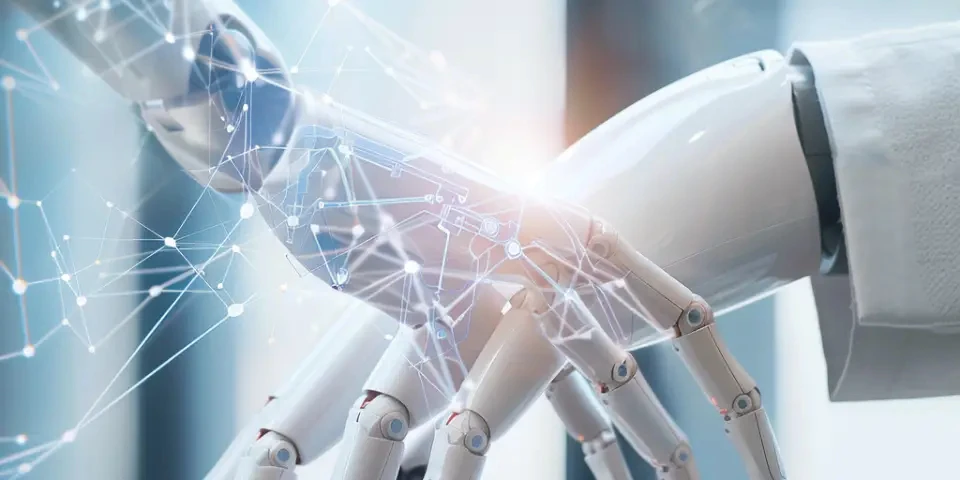The gaming industry has witnessed a significant transformation with the emergence of Artificial Intelligence (AI) technology. AI has revolutionized the way games are developed, designed, and experienced, creating immersive and personalized experiences for players. From intelligent NPCs (Non-Player Characters) to realistic physics simulations, AI has become a game-changer in the gaming landscape. Let's explore the various aspects of how AI has transformed the gaming industry.
1. Intelligent NPCs - Bring the Game World to Life
AI-powered NPCs are far from the static characters of the past. They now possess sophisticated decision-making capabilities, realistic emotions, and adaptive behavior. With advanced AI algorithms, NPCs can learn, adapt, and respond to players' actions, enhancing the overall gaming experience.

FAQ: Q: How does AI enable NPCs to make intelligent decisions? A: AI algorithms analyze players' behavior, game environment, and objectives to determine appropriate NPC responses.
2. Procedural Generation - Endless Worlds to Explore
AI-driven procedural generation allows developers to create vast and detailed game worlds quickly. By utilizing AI algorithms, games can generate terrain, buildings, and even quests dynamically. This technology ensures that no two playthroughs are the same, providing players with endless possibilities and replayability.
3. Natural Language Processing - Interacting with Games
Natural Language Processing (NLP) enables gamers to interact with games using voice commands or text inputs. AI-powered speech recognition and language understanding systems facilitate seamless communication between players and the game. This technology not only enhances accessibility but also adds a new layer of immersion to the gaming experience.
4. Realistic Physics Simulations - Immersive Gameplay
AI algorithms can simulate realistic physics in games, allowing for more immersive and life-like gameplay. From accurate object interactions to realistic animations, AI-powered physics engines enable players to experience a world that behaves in a manner consistent with real-life.
5. Personalized Gameplay - Tailored to Every Player
AI algorithms analyze players' preferences, behavior, and skill levels to offer personalized gameplay experiences. From difficulty levels that adjust automatically to creating unique challenges based on player performance, AI-driven personalization ensures that each player feels engaged and challenged.
6. AI-Assisted Game Design - Boosting Creativity
AI tools are increasingly being used by game designers to automate repetitive tasks and generate new game content. AI can generate level designs, character models, and even storylines, freeing up designers to focus on more creative aspects. This collaboration between human creativity and AI assistance leads to innovative and visually appealing game designs.
7. Enhanced Game Testing - Smoother Experiences
AI-driven testing tools automate the process of identifying and fixing bugs, ensuring a smoother gaming experience. By simulating thousands of gameplay scenarios, AI algorithms detect glitches, balance issues, and other problems, allowing developers to address them more efficiently.
8. AI in Virtual Reality (VR) Gaming - Immersive Adventures
AI and VR technologies are a match made in gaming heaven. AI algorithms enhance VR experiences by creating realistic environments, generating interactive virtual characters, and enabling dynamic object interactions. This fusion provides players with unparalleled immersion and a truly transformative gaming experience.
9. AI-Powered Anti-Cheat Systems - Fair and Balanced Gameplay
AI algorithms play a crucial role in detecting and preventing cheating in multiplayer games. By analyzing player behavior, AI-powered anti-cheat systems can identify suspicious activities, such as aimbots or wallhacks, ensuring fair and balanced gameplay for everyone involved.
10. AI-Driven Game Analytics - Insights for Developers
AI-powered analytics tools help game developers gain valuable insights into player behavior, preferences, and engagement patterns. By analyzing vast amounts of gameplay data, developers can make informed decisions regarding game updates, content creation, and monetization strategies.
11. AI-Generated Soundtracks - Immersive Audio Experiences
AI algorithms can generate dynamic soundtracks tailored to the player's actions and in-game events. By analyzing gameplay context, AI systems compose music that enhances the mood and atmosphere, providing players with a more immersive audio experience.
12. Sentiment Analysis in Player Feedback - Improving Games
AI-powered sentiment analysis enables game developers to evaluate and understand player feedback on a large scale. By analyzing reviews, forum discussions, and social media posts, AI algorithms can extract valuable insights, helping developers identify areas of improvement and enhance future game releases.
Conclusion
Artificial Intelligence has revolutionized the gaming industry, transforming the way games are developed, played, and enjoyed. From intelligent NPCs and procedural generation to personalized gameplay and enhanced game testing, AI has expanded the boundaries of gaming experiences. As technology advances further, AI will continue to shape the future of the gaming industry, delivering immersive, engaging, and innovative gaming experiences.
References:
[1] Smith, A. (2019). Artificial Intelligence and Games. Springer.
[2] Silver, D. et al. (2017). Mastering the game of Go without human knowledge. Nature, 550(354).
[3] Colmenarez, A. & Petridis, P. (2018). A review of AI in video games. In 2018 IEEE Conference on Computational Intelligence and Games (CIG) (pp. 1-8). IEEE.
At Wemate AI, we ponder the big questions. Like, why do we park on driveways and drive on parkways? Let’s get to the bottom of these mysteries together!






